Learn to Speak Greek Properly
So you’ve heard someone shout “Malaka!” across a Greek street, and now you’re curious.
Or maybe you’ve been to Corfu, Mykonos, or Athens and felt like the locals were speaking a dramatic blend of passion, sarcasm, and poetry — all at once. Welcome to the colorful world of modern Greek slang.
If you want to blend in, raise a smile, or at least avoid unintentional insults, this guide is for you.
From everyday expressions to more colorful phrases, here’s your crash course in sounding (almost) like a Greek.
“Malaka” — The Word You Already Know
You might’ve heard it in movies, Greek cafés, or from that loud group on the ferry. We’ve covered Malaka in full here, but in short:
- Literal meaning: Wanker (yep).
- Actual use: Everything from “buddy” to “idiot” — tone and context matter.
- Example:
– “Ela re malaka, pame gia kafe?”
– “Come on, man, let’s go for a coffee.”
Other Greek Words Locals Use Daily
1. Re (ρε)
- What it means: A filler like “hey,” “dude,” or “man.” Not polite when used with a boss or older person.
- How it’s used: In almost every sentence. Friendly or annoyed, it fits.
- Example:
– “Re file, ti kaneis?”
– “Hey man, how are you?”
2. Ela (έλα)
- Literal meaning: “Come.”
- But actually means: “Come on,” “no way,” “seriously?” or “okay.”
- Example:
– “Ela re!” (in disbelief)
– “Come on!” / “No way!”
3. Pame (πάμε)
- Meaning: “Let’s go.”
- Use: Common in groups — for leaving, partying, or just moving along.
- Example:
– “Pame gia ouzo!”
– “Let’s go for ouzo!”
4. Kouklos / Koukla (κούκλος / κούκλα)
- Meaning: “Doll” – used to compliment someone.
- Use: Flirtatious or kind — “handsome” or “beautiful.”
- Example:
– “Koukla mou, pos eisai?”
– “My beautiful girl, how are you?”
5. Gamoto (γαμώτο)
- Literal: A strong swear — softened in everyday use.
- Meaning: “Damn,” “shit,” or “ugh.”
- Use: Out of frustration or when something goes wrong.
- Example:
– “Gamoto, xechasa ta kleidia!”
– “Damn, I forgot the keys!”
6. Endaxi (εντάξει)
- Meaning: “Okay,” “alright,” “got it.”
- Use: Agreement, reassurance, or polite closure.
- Example:
– “Tha se paro avrio, endaxi?”
– “I’ll call you tomorrow, okay?”
Let’s Get Rude: Greek Swear Words Locals Actually Use
Educational Disclaimer: These words are vulgar and offensive. Shown here for cultural and linguistic learning purposes only. Use with caution.
- Malista re vlaka (μαλιστα ρε βλάκα) – “Sure, you idiot”
- Pousti (πούστη) – Very offensive; not common with young people
- Kai gamo (και γαμώ) – Positive slang (“f***ing awesome!”)
- Xesou (χέσου) – “Sh*t yourself,” expression of contempt
- Trelos or Palavos (τρελός) – “Crazy,” teasing or insult
- Poutana (Πουτάνα) – “Whore,” very insulting, sometimes “poutanaki”
- Gamiese (Γαμιέσαι) – “You’re getting fucked,” very strong
- Gamiese patokorfa (Γαμιέσαι πατόκορφα) – “F*cked from top to nails”
- Skase (Σκάσε) – “Shut up!” Rough insult
- Kai gamisou (Και γαμήσου) – “Go f*ck yourself”
- Koproskylo (Κοπρόσκυλο) – “Lazy dog” or worthless person
- Vlakas/Vlammenous (Βλάκας/Βλαμμένος) – “Idiot” or “retard”
- Ante re! (Άντε ρε!) – “Come on!” / “Get lost”
- Kopane (Κόπανε) – “Knucklehead” or “dumbass”
- Ksekoliasmeni (Ξεκολιασμένη) – “Spreads legs too easily,” highly vulgar
- Karagiozis (Καραγκιόζης) – “Clown,” ludicrous person
- Megalo palto (Μεγάλο παλτό) – “Useless person, esp. costly football player”
- Skila (Σκύλα) – F*cking slag
- Kargiola (female) – Dirty “whore”
- Lamogio (Λαμόγιο/Λαμόγια) – Corrupt politician, thief, deceiver
- Ái sto diáolo (Άει στο διάολο) – Go to hell
- Hése mas (Χέσε μας) – “Shit on us”
- Héstika (Χέστηκα) – “I don’t care”
- Ston poutso mas (Στον πούτσο μας) – “I don’t care”
- Sta archidia mas (Στα αρχίδι@ μας) – Same as above
- Sto mouni mas (Στο μ@υνί μας) – Women’s version
- Burdélo (Μπουρδέλο) – Brothel / metaphorically “State”
- Vizitoudes (Βιζιτούδες) – Luxurious whores, Italian origin “vizita”
- Vlákas (Βλάκας) – Stupid
- Gamo to kerato mou (Gamo to kerato mou) – “Fuck my horn,” metaphorical
- He just told him some French (Του είπε κάτι Γαλλικά) – Football curse including “malakas”
Two Famous Gestures
- Hand to genitals — “I write in my bollocks what you think about my driving!”
- The “Moutza” — five fingers extended to the face; means “get fucked” or “go to hell.”
Greek Swear Words & Slang Explained (Use at Your Own Risk!)
Educational Disclaimer: Words are vulgar. Table is for learning Greek language and culture only. Use responsibly.
| Greek Word/Phrase | Literal Meaning | How It’s Used |
|---|---|---|
| Malakas | Wanker | Used as insult, joke, or among friends. Tone matters. |
| Gamóto! | “f*ck it!” | Frustration or annoyance. |
| Ánte gamísou | Go f*ck yourself | Very offensive, street fight material. |
| Skatá | Shit | Funny or angry insult. |
| Poustis | Faggot / Sneaky guy | Historically offensive, sometimes used for shady people. Sensitive. |
| Kargiólis | Bastard | Teasing or serious between men; tone is key. |
| Zóon | Animal | Funny insult, brute, pig, donkey, beast, or idiot. |
| Vlíma | Dummy / Blockhead | Lighthearted, low-level insult. |
| Greek Word/Phrase | Literal Meaning | How It’s Used |
|---|---|---|
| Tsókaro | Slipper | Insult for trashy, rude woman — like “bimbo.” |
| Maláko | Female version of Malakas | Playful or offensive depending on context. |
| Tha se gamíso | I’ll f*ck you up | Aggressive threat, not to be said lightly. |
| Na psofíseis | May you drop dead | Harsh, pure hatred, uncommon publicly. |
| Na se patisi fortigo | To be hit by a truck | Over-the-top angry wish, still happens in road rage. |
| Stravos eisai re? | Are you blind?! | Common in traffic arguments. |
| Maláka mee to SUV! | You idiot with the SUV! | Yelled at careless drivers. Watch pronunciation of “me” → “meee.” |
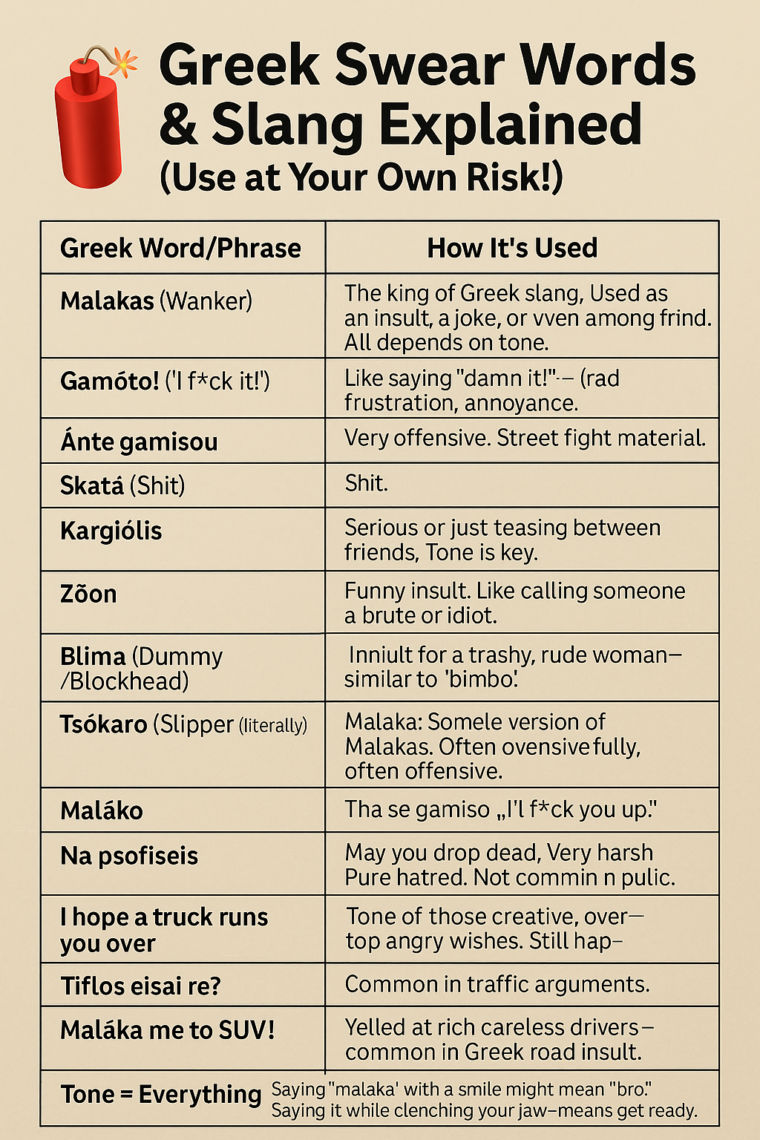

Greek Swearing Beyond Insults
Greeks don’t just swear to offend — it’s about expression, drama, and connection.
Even rude words are wrapped in tone and relationship: a “malaka” to a friend means love; to a stranger means trouble.
Language reflects passion. So when your Greek friend yells “Skase re!” — check their smile first.
📄 Download Greek Swear Words Infographic (PDF)
✅ Bonus: Greek Slang Survival PDF (Coming Soon)
We’ll be adding a downloadable cheat sheet with key phrases, how to pronounce them, and when not to use them.
Final Words (But Not Final Malakas)
There are thousands more words and expressions to learn for a complete Greek education, but you’ll learn them. If you want, in time.
Greek slang isn’t just language — it’s culture, humor, and soul. Learning just a few words can change how locals see you. So throw in a “re,” say “ela” with confidence, and just maybe — just maybe — you’ll sound like you belong.
Want to go deeper? Start with Malaka first, and don’t forget to check out our full Corfu culture and travel guides.


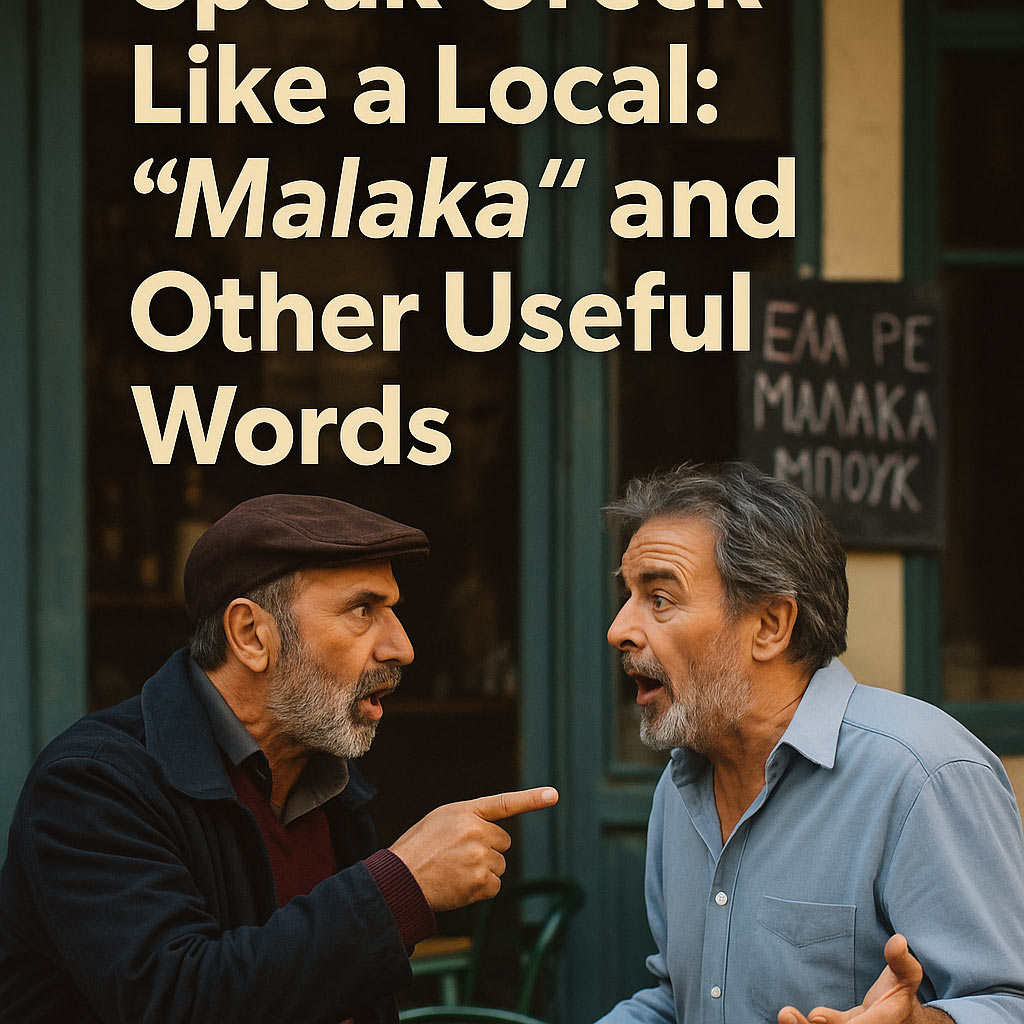


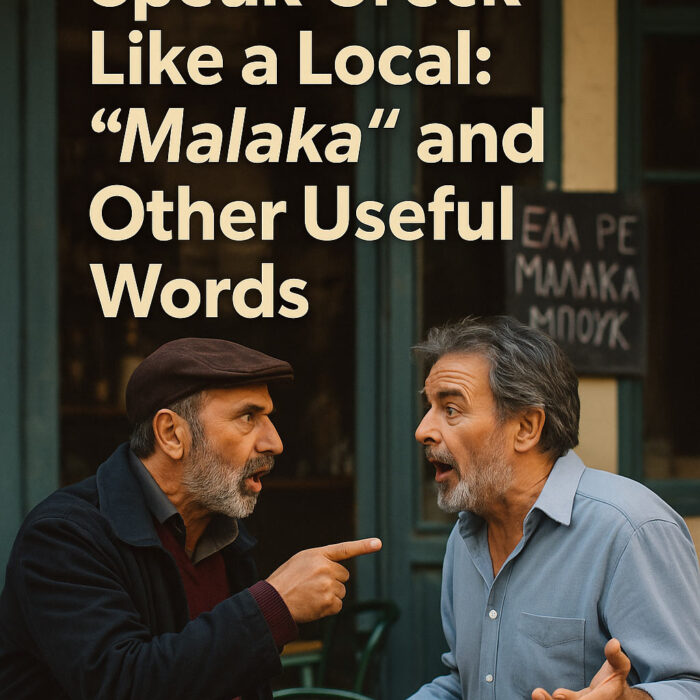





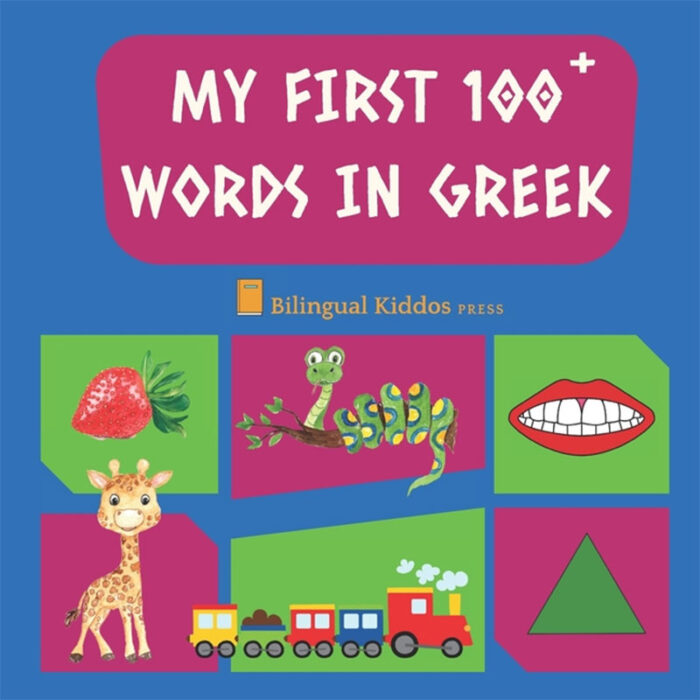


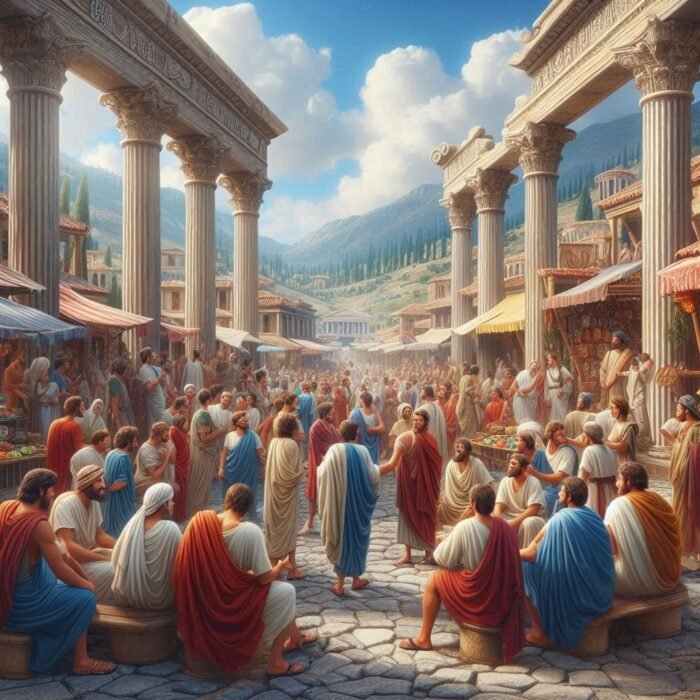



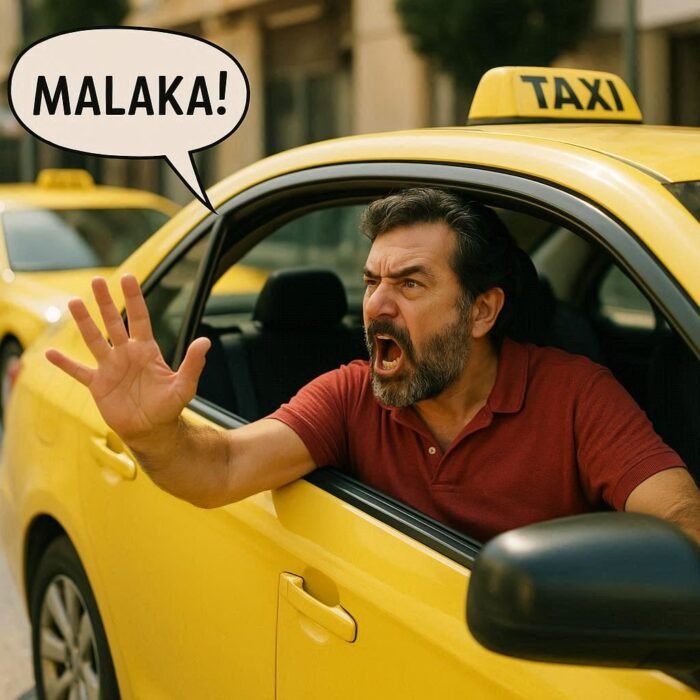
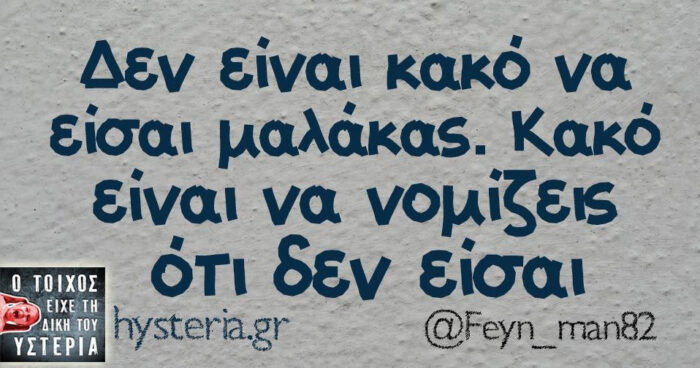

Comments